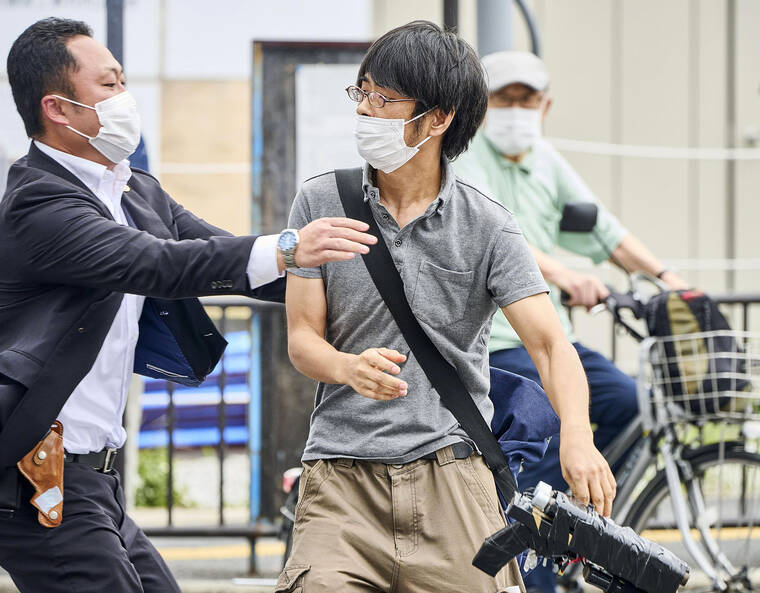Japan’s tight gun laws add to shock over Abe’s assassination
TOKYO — The assassination of former Prime Minister Shinzo Abe in broad daylight Friday shocked a world that has come to associate Japan with relatively low crime and strict gun control.
Japan’s longest-serving prime minister, Abe was shot in the back while campaigning in the city of Nara for parliamentary candidates. He died at a hospital, two days before the election.
ADVERTISING
The suspect apparently circumvented the nation’s ultra-tight gun regulations by building his own weapon. Police said the 15-inch (40-centimeter) device was obviously homemade, and one expert compared it to a muzzle-loading gun.
Authorities confiscated similar weapons when they raided the suspect’s nearby one-room apartment.
The motive of the man, who was taken into custody at the scene, remained unclear.
Fatal gun violence is virtually unheard of in Japan, and most Japanese go through life without ever handling, or even seeing, a real gun. Stabbings are more common in killings.
Major universities have rifle clubs, and Japanese police are armed, but gun ownership rights have been a distant issue for decades.
Even police rarely resort to firing their pistols.
With a population of 125 million, the country had just 10 gun-related criminal cases last year, resulting in a single death and four injuries, according to police. Eight of those cases were gang-related.
The densely populated capital of Tokyo had zero gun incidents, injuries or deaths during that same year, although 61 guns were seized there.
“Japanese people are in a state of shock,” said Shiro Kawamoto, professor at the College of Risk Management at Nihon University in Tokyo.
“This serves as a wake-up call that gun violence can happen in Japan, and security to protect Japanese politicians must be re-examined,” Kawamoto said. “To assume this kind of attack will never happen would be a big mistake.”
Abe’s security team may face serious questions. But because such attacks are extraordinary in Japan, relatively light security is the norm, even for former prime ministers.
The last high-profile shooting occurred in 2019, when a former gang member was shot at a karaoke venue in Tokyo.





